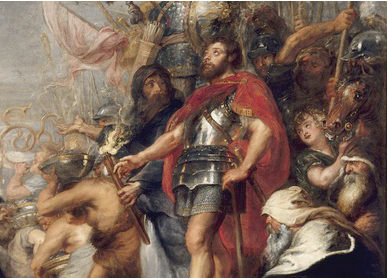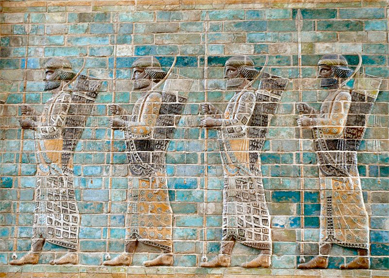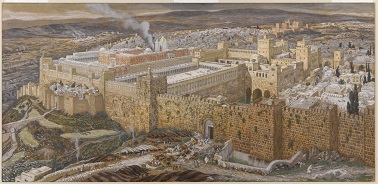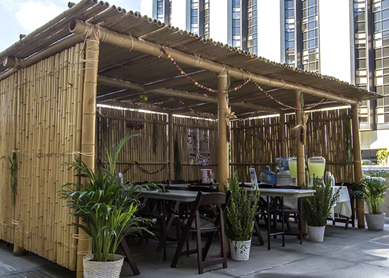Hanukkah, a term from the Hebrew term for “to dedicate,” is an annual Jewish festival in late November/early December (on the Hebrew, lunar calendar, the 25th of Kislev to the 2nd of Tevet). The festival commemorates the purification and rededication of the Jerusalem temple by Judah, nicknamed “Maccabee” (likely from the Aramaic for “hammer”) and his followers in 164 BCE.
Why did Judah Maccabee rededicate the Jerusalem temple?
Three years earlier, the Seleucid king Antiochus IV Epiphanes had forbidden Jewish practices such as circumcision and dietary regulations, ended the temple’s traditional sacrifices, dedicated the building to the Greek god Zeus, and sacrificed a pig on the altar (what
Once in control of the temple, Judah removed the desecrated altar and dedicated a new one. In joyous response, the people initiated an eight-day festival modeled on the festival of Sukkot (Tabernacles), an annual early fall pilgrimage celebration whose observance had been interrupted by Antiochus’s outrages. The new celebration was not originally called Hanukkah but “Tabernacles of the month of Kislev” (
Why is Hanukkah called the “Festival of Lights?”
The earliest descriptions of Hanukkah are found in the late second century BCE (
Hanukkah’s observance eventually came to be associated with the lighting of oil lamps and later, candles. In the first century CE, Josephus refers to Hanukkah as the “Festival of Lights,” because of the new hope the temple’s purification gave the Jews (Jewish Antiquities 12.325). The Talmud connects the practice of lighting candles with a legend about Judah finding just enough sacred oil to keep the seven-branched lampstand in the temple, called the menorah (Hebrew for “lamp”), burning for a single day, but that God miraculously kept it alight for eight days (b. Shabbat 21b). Thus, in rabbinic Judaism the Maccabean military victory was gradually eclipsed by a focus on piety and miracle. The Hanukkah menorah or “hanukkiah,” which Jews light on Hanukkah to this day, has nine branches: one for each of the eight days, and a ninth from which the other eight are lit. Customs such as eating potato pancakes fried in oil (Yiddish: “latkes”) and jelly-filled fried donuts (Hebrew: “sufganiyot”) and spinning tops called dreidels, date to the postrabbinic period.
Why is a Jewish festival not in the Jewish Bible (Tanakh)?
The story of Hanukkah appears in the books of the Maccabees, texts that are not part of the Jewish canon. The books of Maccabees are, however, included in the Septuagint and are canonical for Roman Catholics, Anglicans, and Orthodox Christians.
Bibliography
- Strassfeld, Michael. The Jewish Holidays: A Guide and Commentary. New York: William Morrow, 2001.
- Schauss, Hayyim. The Jewish Festivals: A Guide to Their History and Observance. New York: Schocken, 1987.
- Fine, Steven. The Menorah: From the Bible to Modern Israel. Cambridge, MA: Harvard University Press, 2016.




